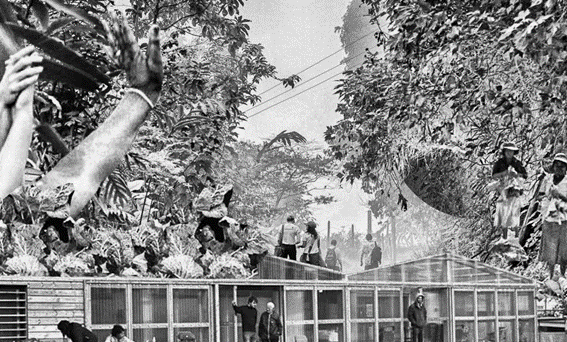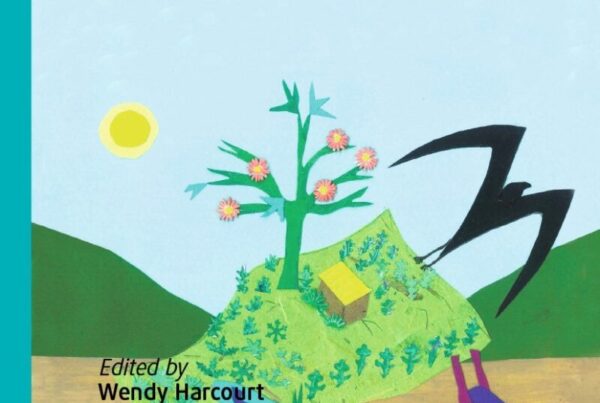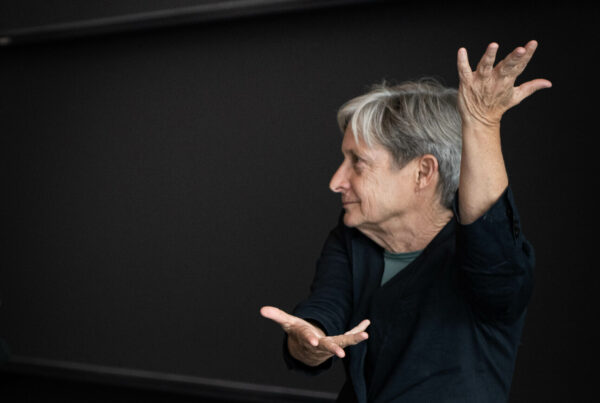By Berliner Gazette
How can we build our future on the legacies and claims of those who, yesterday as today, have been plunged into existential hardship by the ecological-economic complex? And how can we make such struggles a source of inspiration for a common cause? These are the guiding questions of the “After Extractivism” project by the non-profit platform Berliner Gazette.
After an inspiring local event in Berlin at the Haus der Demokratie und Menschenrechte, the Berliner Gazette has launched the “After Extractivism” conference as an “asynchronous online event” and expansive resource site with video talks, projects, texts, and audios tackling the Ecological-Economic Complex, Green Capitalism, and Transition Justice. Check out the website here: https://after-extractivism.berlinergazette.de
The “After Extractivism” resources are all under a Creative Commons license, and we are presenting below a selection of video talks.
Fighting for debt cancellation and environmental justice in the Global South, the question is how we can wager our future on the legacies and claims of those who – then as now – have been plunged into existential hardship by the ecological-economic complex. In his contribution to the Berliner Gazette’s video talks series “After Extractivism,” economic anthropologist Julio Linares is looking for answers in Latin America.
While ecological and economic systems are collapsing, a battle for white supremacy is raging; it is not least a class war for (controlling) access to the shrinking living space on the planet. It is high time to counter this development with a radical politics of earthcare, as feminist researcher, facilitator, and artist Manuela Zechner argues in her contribution to the Berliner Gazette’s video talks series “After Extractivism.”
The suffering caused by extractive capitalism has people looking back to Yugoslavia’s modernization project. While aiming to dominate nature, it also created cooperative platforms for social togetherness, enabling sustainable ways of living and organizing economy. In her lecture for the Berliner Gazette’s video talks series “After Extractivism” researcher Katarina Kušić discusses this as a source of inspiration for current struggles.
On the “After Extractivism” website, you will find more on issues related to our own work in the Texts section (with collections of essays on three themes: “Ecological-Economic Complex”, “Green Capitalism” and “Transition Justice”), the Projects section (with a diversity of initiatives including Rebooting Eco-Justice“, “Climate and Tech Politics”, and “Disarming Resource Wars“, among others), and the Audio section (with talks on e.g. Empire and Ecology, Caring Economies, and Post-Soviet Extractivism)
Berliner Gazette (BG) is a nonprofit and nonpartisan team of journalists, researchers, artists, and coders, analyzing and experimenting with emerging cultural and political practices. Since 1999 we have been publishing Berliner Gazette under a Creative Commons License with more than 1,000 contributors. In dialogue with our international network we create annual projects, exploring the issues at hand not only in the form of text series but also conferences and books. Our latest projects include Black Box East (2021), Silent Works (2020), More World (2019), Ambient Revolts (2018), Signals (2017), A Field Guide to the Snowden Files (2017), Friendly Fire (2017), Tacit Futures (2016), UN|COMMONS (2015), BQV (2012), and McDeutsch (2006).
The curators of the AFTER EXTRACTIVISM project are Magdalena Taube and Krystian Woznicki. Magdalena is editor-in-chief of the Berliner Gazette and professor of Digital Media and Journalism at the Macromedia University of Applied Sciences in Berlin. She is the author of “Disruption des Journalismus” (2018) published by Institute of Network Cultures, Amsterdam and co-editor of numerous readers, including “Invisible Hand(s)” (2020) published by Multimedijalni institut, Zagreb. Krystian is a critic, photographer, and the co-founder of Berliner Gazette. Exploring the common(s) at the intersection of globalization and digitalization, he has created books that blend writing and photography, including “After the Planes” (2017), “Fugitive Belonging” (2018), and “Undeclared Movements” (2020).







